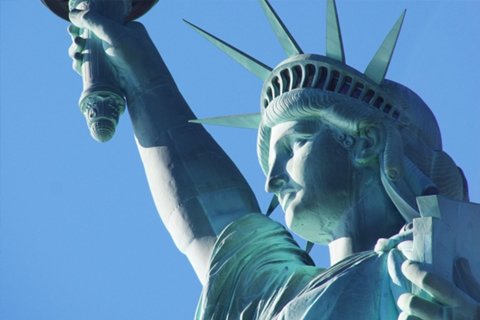Is more Democratization possible in a 'Crisis of Democracy'?
2022.10.14
In 1947, two years after the end of World War Two, Winston Churchill said, "It has been said that democracy is the worst form of Government except for all those other forms that have been tried from time to time...." Simply put, he meant that democracy is the best form of government that humans have yet developed. Clearly, he also meant that democracy is not a perfect form of government (this would be impossible). In this short essay, let's look into the spread of democracy around the world, and the possibility of this continuing amid a 'Crisis of Democracy'.
Global Spread of Democracy
In the last 200-plus years, the number of democratic states around the world has increased dramatically. Samuel Huntington put this into three 'Waves of Democratization'. The first happened about 200 years ago, the second after World War Two and included Japan, and the third from the mid-1970s and included South Korea and Taiwan.
One of the most recent countries in East Asia to democratize was Myanmar. In 2011, the military government released Aung San Suu Kyi, and her National League for Democracy won a victory in the elections of 2015. We should say that this democratization, or transition to democracy was 'home-made'. However, Western democratic states had sanctions on Myanmar for about 20 years, and ending these sanctions was one of the reasons for the military to share power with the NLD. The lifting of sanctions was an 'incentive', and in this way, the West successfully pressured the military of Myanmar to democratize. Sadly, this all ended in 2021, when the military took back total power of the government.
The case of Myanmar shows not only that many populations want democracy, but also that democratic states encourage and support this.
Crisis of democracy
Let's very briefly look into democracy in Ukraine. In 2021, before the Russian invasion, Freedom House, which measures democracy, gave Ukraine a score of 60, meaning 'partly free' (Moldova, next door, had a score of 61). In 2021, the Economist gave Ukraine a score of 5.57, meaning a 'hybrid regime'. Importantly, in 2010, The Economist gave Ukraine a much higher score of 6.30, meaning a 'flawed [or weak] democracy'. According to the Economist, therefore, Ukraine had been de-democratizing for over ten years before the Russian invasion.
However, the 'Crisis in Democracy' can be seen in the response of much of the world to the Russian invasion of Ukraine. While the democracies of Europe and the US have put strong sanctions on Russia, many other states around the world have shown much less support for sanctions. India, for example, the world's largest democracy, has not supported sanctions. Shockingly, in the middle of a global energy crisis, OPEC recently announced a reduction in oil production. This was taken as a clear sign of support for Russia. We can see that one part of the crisis of democracy is the lack of global support for the Western democracies in the war in Ukraine.
Importantly, the 'Crisis of Democracy' comes from within as well. The rise of anti-democratic, and anti-liberal values in the Western democracies is widespread. An example of this is the attack on free speech, which is occurring even within democratic institutions across the West.
The Future of Democratization
Could it be that democracy will continue to spread in the 21st century, as it had in the 20th? If the liberal democracies really are in crisis, will other Great Powers support democratization overseas? Well, the simple answer to this is that non-democracies do not support democratization, at home or abroad. Russia, at it showed in its support for the Syrian government is interested in security, not democracy. Of course, security is necessary for democracy, but democracy is not necessary for security. How about the Chinese government? Will China use its influence to promote democracy around the world? This is of course, impossible. We know from the actions of the Chinese government in Hong Kong that it views democracy as an enemy. In fact, the Chinese Communist Party (CCP) have also said this, on a number of occasions. A 2013 'Communique on the current state of the Ideological Sphere" clearly stated that democracy is used by the enemies of China to weaken Communist control. This takes us the final section on the power of democracy
The Power of Democracy
It seems people around the world like democracy because of its ability to protect individual freedoms. It does this with the 'Rule of Law', the 'separation of [government] powers', 'free and fair elections', and 'peaceful conflict resolution'. However, the real power of democracy is its primary purpose; to prevent tyranny, to stop a small group of elites from gaining control of the state and using it for their own purposes. The real power of democracy is to prevent totalitarian government, and this is why totalitarian governments see it as a threat. Therefore, another wave of democratization needs democratic states to be strong and truly democratic.

パトリック ストレフォード 教授
ODA/政府開発援助






